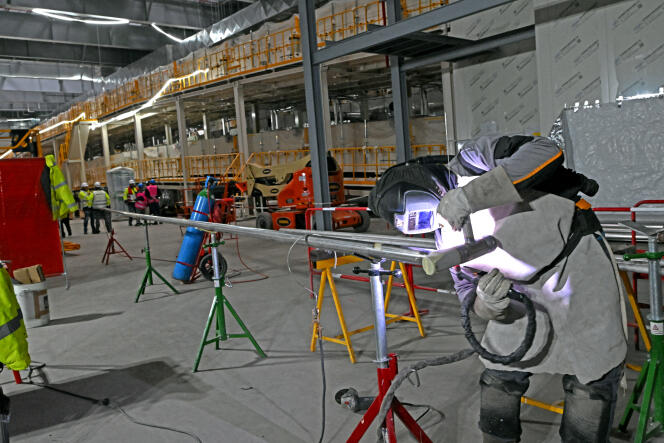
Industrial policy is a complicated art. The European Court of Auditors demonstrates this in an audit report devoted to the Union’s battery policy, made public on Monday 19 June, which it has chosen to call “A new strategic impetus is needed”. The title is a positive way of presenting a much more disturbing conclusion: “The European Union risks failing to become a global engine of this industry”explain the European magistrates.
A serious problem, warns Annemie Turtelboom, head of audit: “Batteries must not become Europe’s new natural gas. We must avoid finding ourselves in the same situation of dependence. » For the author of the study, it is a question of economic sovereignty, but not only: without a start, the Union risks being forced to postpone the ban on thermal vehicles beyond 2035. Or to remain hyper-dependent on China, which produces 76%.
However, at the start, everything seemed to be on the right track. From 2008, the risk of dependency was identified. In 2017, a European battery alliance is planned. In 2018, an action plan is defined. Since then, the Commission has been rolling it out and projects are flourishing all over Europe. To read the advertisements, we could even produce too many batteries there.
“By 2030, if the companies successfully implement the announced projects, the Union could reach a battery production capacity of between 714 and 1,200 GWh”indicates the report: enough to satisfy demand from 2025 and to equip up to 16 million vehicles per year in 2030, “more than the number of new passenger car and van registrations recorded during the pre-Covid peak” and even “twice as much as the production target set by the Commission”. But it’s all in the ” whether “. Because the magistrates seem very skeptical about the realization of the announced projects and put their finger on a series of major obstacles.
Slow European adaptation
The first – the complexity of European aid, the lack of clarity and the excessively long delays in obtaining it – seems almost the easiest to solve given the difficulty of the following ones. The second is the speed at which the international context is changing and the slowness with which Europe is adapting: the whole battery action plan was designed at a time when energy was affordable and not did not take into account the risk posed by a possible rise.
You have 49.36% of this article left to read. The following is for subscribers only.



